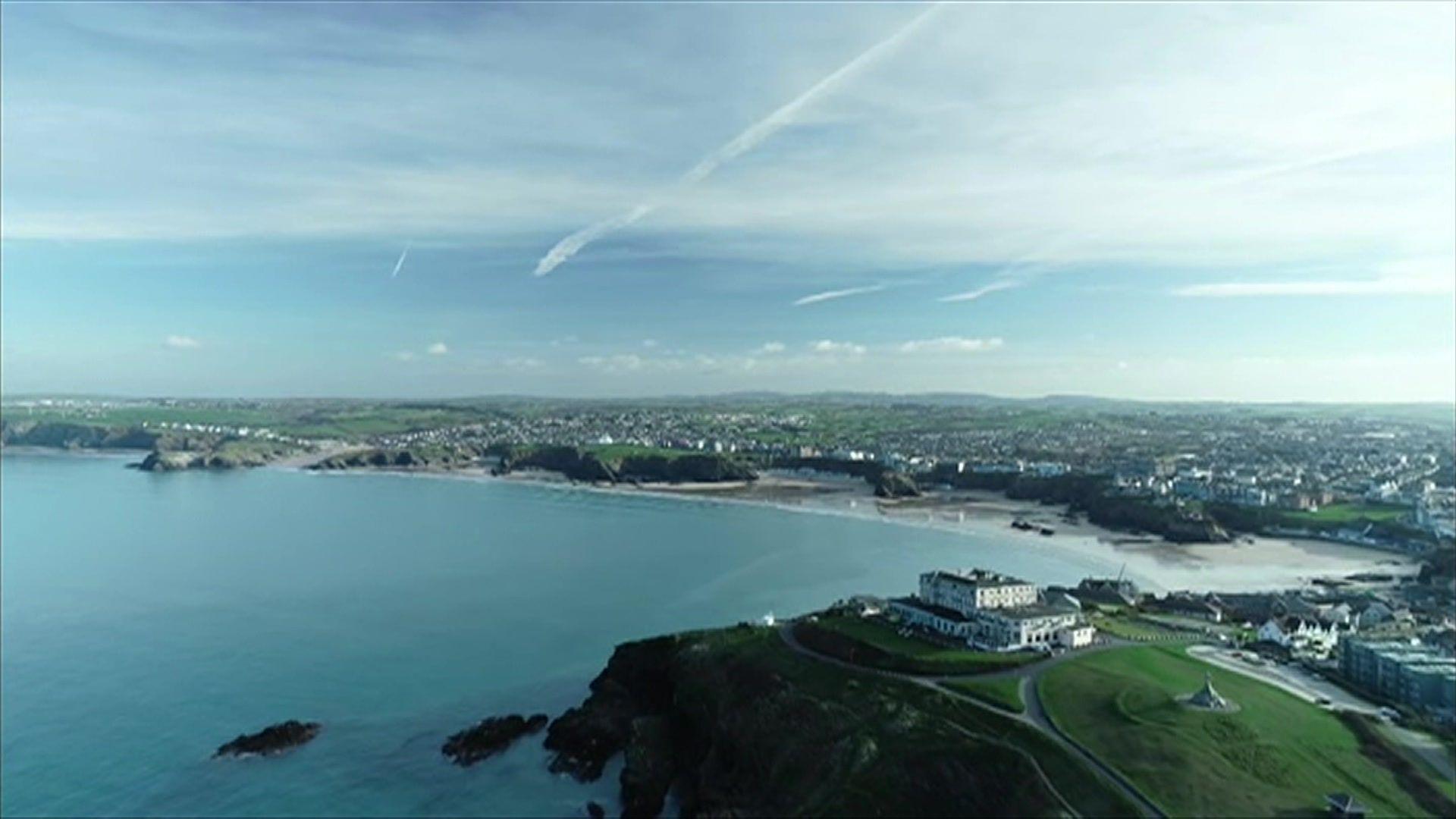Tourism at 'lowest point for 10 years'
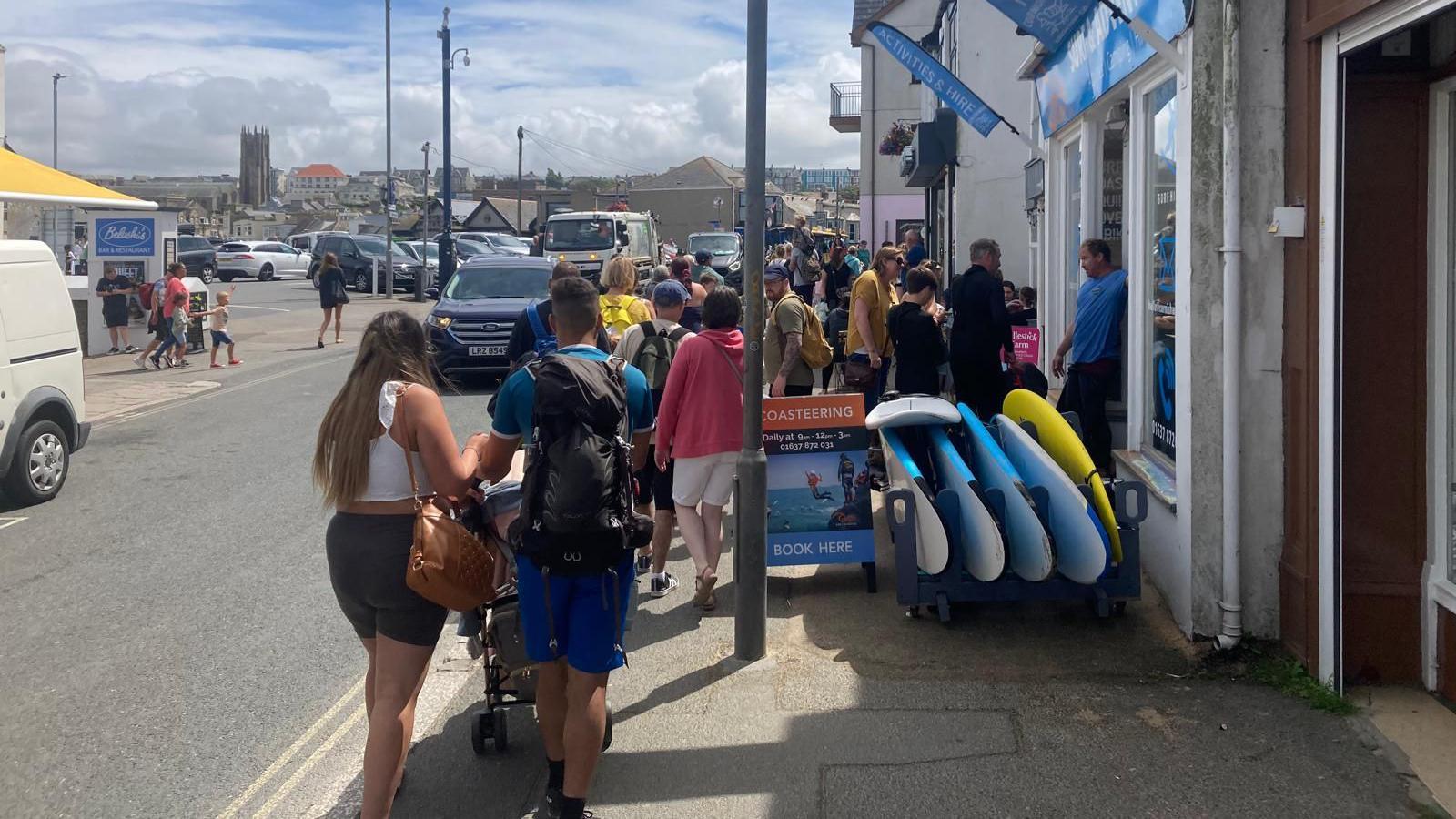
Tourism businesses in Newquay are hoping for a busy summer
- Published
Tourism in the South West is at its "lowest point for 10 years", according to a regional industry expert.
Tim Jones, chairman of the South West Business Council, said firms were facing continuing challenges with staffing, and the cost of living crisis was affecting visitor numbers.
About 17% of pubs and restaurants in the region have closed down and the sector has "dropped away from about £10bn turnover by about £1bn at the moment”, he added.
Tourism businesses have been giving their views on what they would like to see from the next government, following the general election on 4 July.
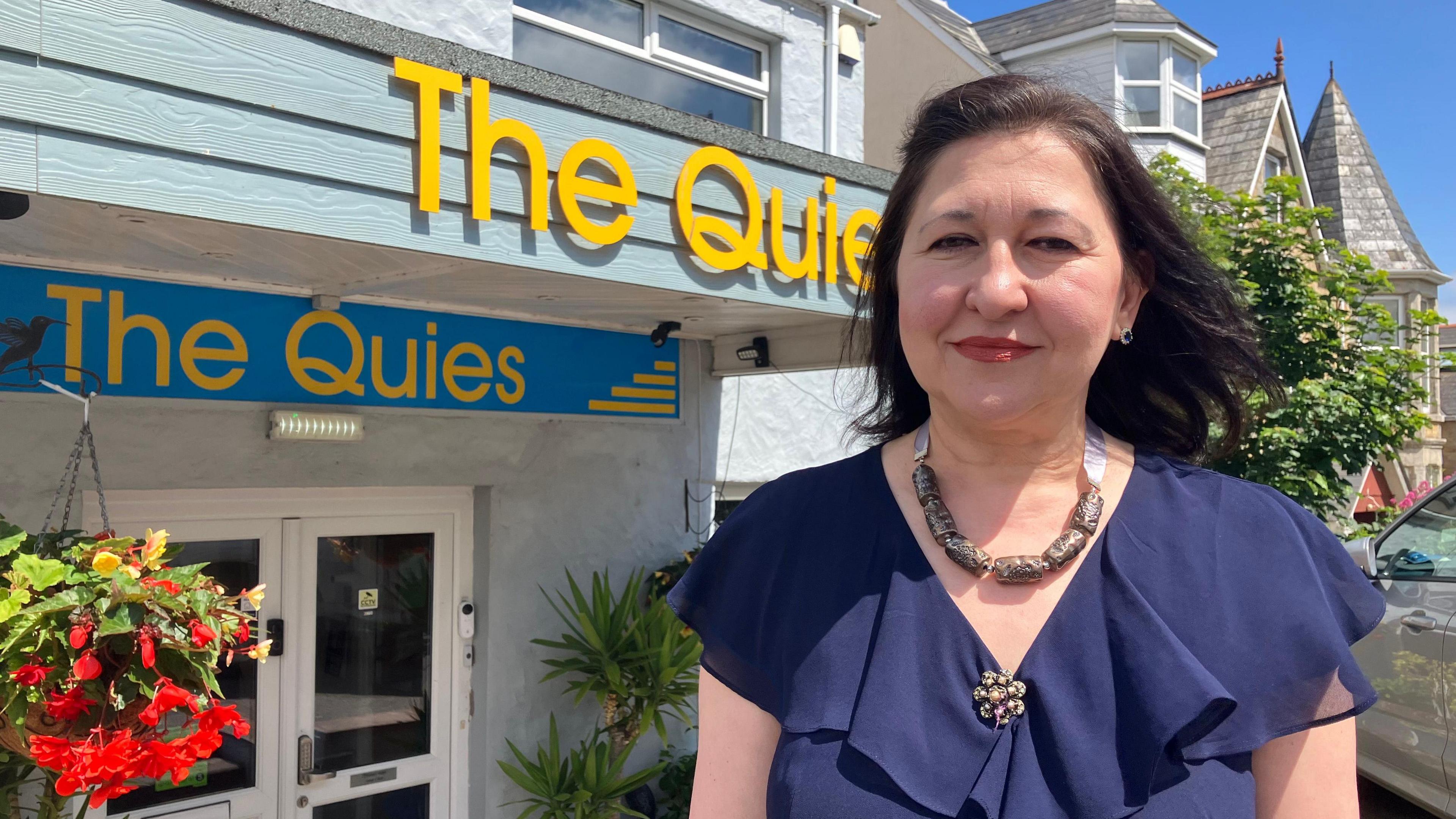
Hotelier Nelya Bradbury is calling for better public transport
Nelya Bradbury runs the Quies Hotel in Newquay and said bookings would increase if public transport was improved.
She said: “For the business to work, we need to be occupied for more than 90% and we can’t drop the price lower than £100 a night, otherwise we don’t make money."
The hotelier added that her customers often highlighted the cost of travelling to the resort by train.
She said: “Cornwall really needs investment in transport. The railway connection is terrible.
"It’s a very high price and it’s cheaper to fly abroad to Spain, Italy or Portugal."
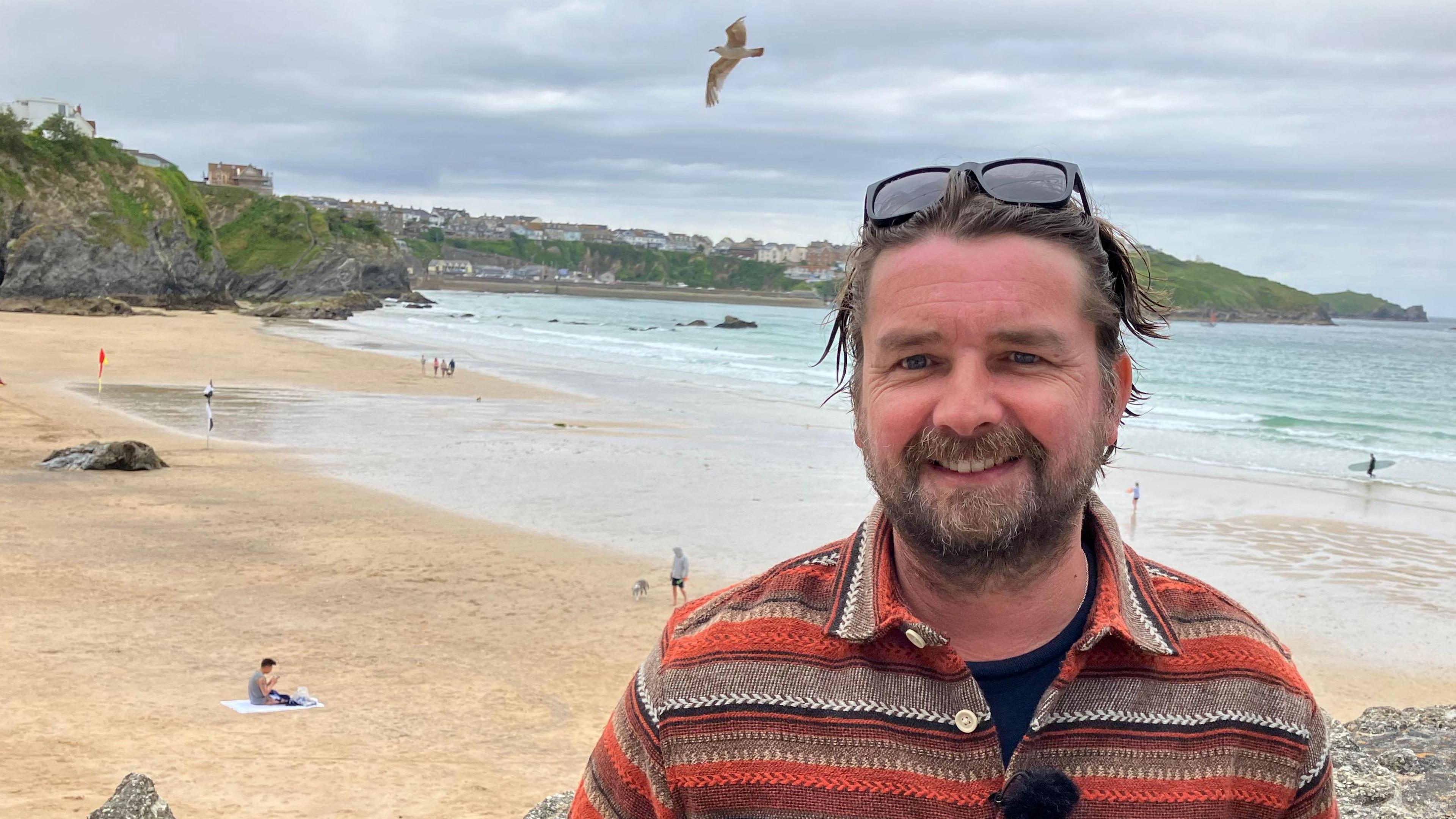
Alex Trumble thinks businesses should be funded to market internationally
Alex Trumble has run Babel Fish English Language School since 2012, with about 80 students at a time hosted by a number of local families.
The 47 year-old said: “I’d like to see more grants given out to small businesses that trade internationally. That would help us advertise to those people.
"They come here and they spend an awful lot of money."
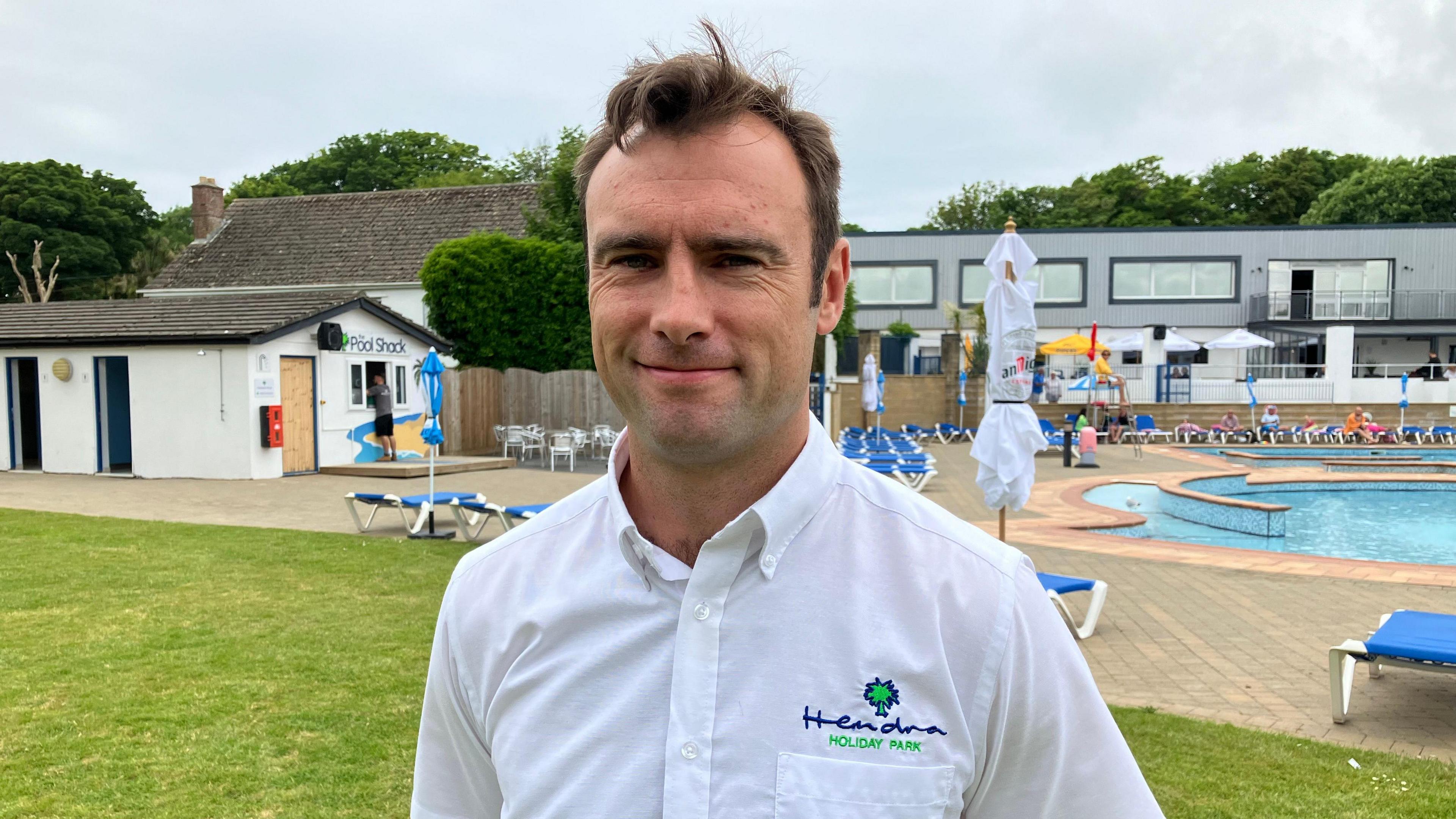
More than 260 people are being employed at Hendra Holiday Park this summer, said managing director Jon Hyatt
Jon Hyatt, managing director of Hendra Holiday Park in Newquay, said he was expecting a busy summer, with about 3,500 guests staying on the site in Newquay every night during the peak holiday season.
“What we’d like to see is economic stability and consumer confidence coming back in, getting past the cost of living crisis and giving consumers confidence to spend money on that well earnt holiday."
Sally Everton, of Visit Devon, said tourism was “vital to the overall economy of Devon”.
She added: "The industry is now focussing on the summer and the need to support businesses and the sector to ensure that bookings occur, and that we get a good remainder of the season."
Analysis: Martyn Oates, BBC South West political editor
Lowering the tax burden and getting better access to labour are high on the tourism industry's general election shopping list.
One tax in particular looms large: VAT.
For a brief period during the Covid pandemic, VAT rates for hospitality were reduced from the standard rate of 20% to just 5% - "stimulating demand and generating revenue", according to the industry body UK Hospitality.
While some MPs in the last parliament supported the industry's campaign to bring it back down permanently, the request fell on deaf ears in government and there's no indication any of the big parties are planning to do so.
Brexit, combined with Covid, has made it more difficult for tourism and hospitality businesses to employ workers from abroad – which many say they rely on to fill staff vacancies.
The present government recently tightened immigration rules further and the Conservatives said they would cut the number of visas issued to migrants if re-elected.
Labour, too, is committed to reducing immigration and, like the Conservatives, places a strong emphasis on upskilling British workers.
The Liberal Democrats, though, say they would introduce a "more flexible merit-based system for work visas, working with employers in each sector to address specific needs".
The Green Party says it “would Implement a fair and humane system of managed immigration”.
Reform UK promises to “freeze non-essential immigration”.
Follow BBC Cornwall on X (formerly Twitter), external, Facebook, external and Instagram, external. Send your story ideas to spotlight@bbc.co.uk, external.
Related topics
- Published14 April 2024
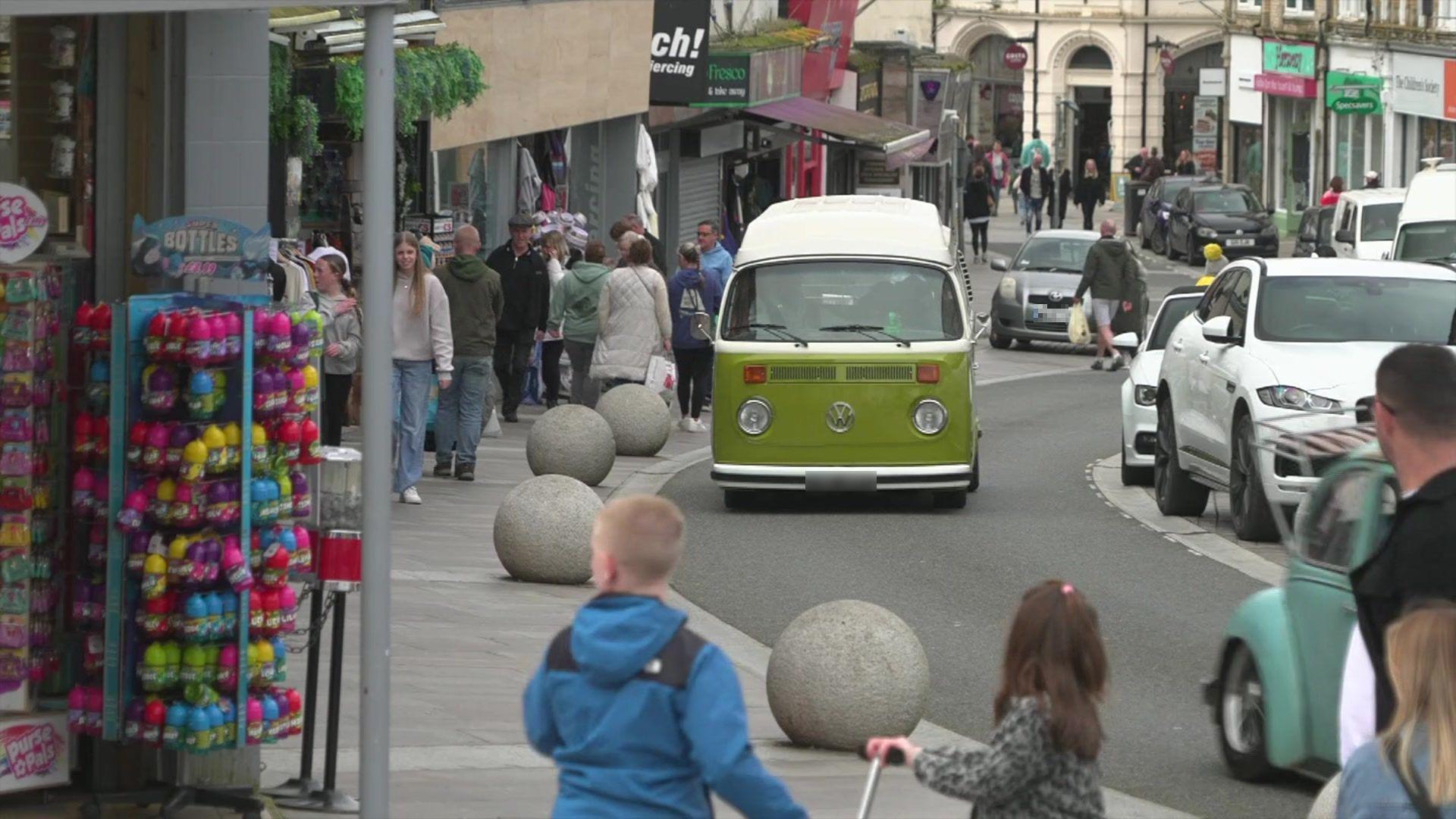
- Published30 May 2024
